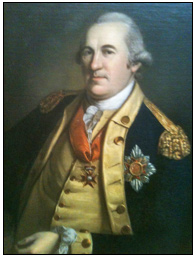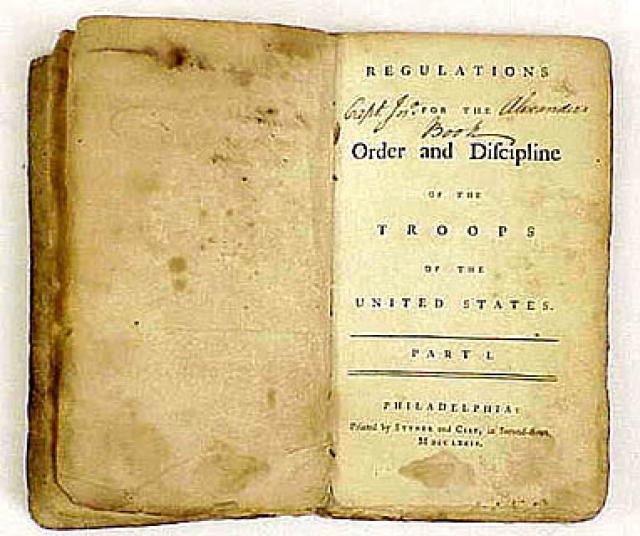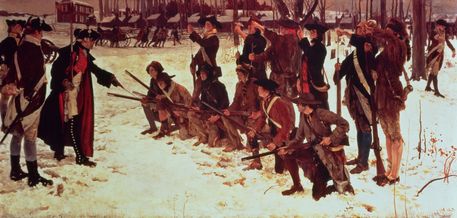Baron von Steuben and the Success of the Continental Army
Baron von Steuben was a Prussian officer who played a large part in molding the Continental Army into the fighting force that eventually won the Revolutionary War for the United States.
He joined the Royal Prussian Army when he was 17 and fought in the Seven Years War, at one point serving as an aide-de-camp to Frederick the Great. After the war, he found himself one of a number of soldiers unemployed after the army downsized. An introduction through a mutual acquaintance to Benjamin Franklin resulted in Steuben’s traveling to America, with the promise of employment in the Continental Army. Steuben reported for duty at Valley Forge on Feb. 23, 1778. Steuben’s arrival must have presented a welcome boost to what was for the Continental Army an otherwise demanding winter.
Steuben also markedly improved the sanitation in the Army’s headquarters, setting a blueprint for future camps to follow.
Steuben was one of a number of officers who sat in judgement at the court-martial of British Major John Andre, who received top-secret information from Benedict Arnold. Steuben later served with Nathanael Greene during battles in the southern states and then joined Washington again for the final battle of the war, at Yorktown. In 1784, Steuben received a military discharge, with honor, and became an American citizen. In retirement, he lived in New York and New Jersey. He died in 1794, unmarried and childless. Steuben is remembered as a pioneer in military discipline and tactics. His name also appears on memorial sites and in the names of parades. |
|
Social Studies for Kids
copyright 2002–2026
David White

 He was born Friderich Wilhelm Rudolf Gerhard August, Freiherr von Steuben. Not much is known of his early life.
He was born Friderich Wilhelm Rudolf Gerhard August, Freiherr von Steuben. Not much is known of his early life.  George Washington
George Washington Steuben, with Washington’s consent, insisted on drilling the troops, boosting their discipline and fighting prowess. The soldiers learned new methods of firing their weapons and quickly reloading. In particular, Steuben drilled the troops hard in using the bayonet, the hard sharp edge of a musket; this training proved crucial in future American victories, particularly at the
Steuben, with Washington’s consent, insisted on drilling the troops, boosting their discipline and fighting prowess. The soldiers learned new methods of firing their weapons and quickly reloading. In particular, Steuben drilled the troops hard in using the bayonet, the hard sharp edge of a musket; this training proved crucial in future American victories, particularly at the 
